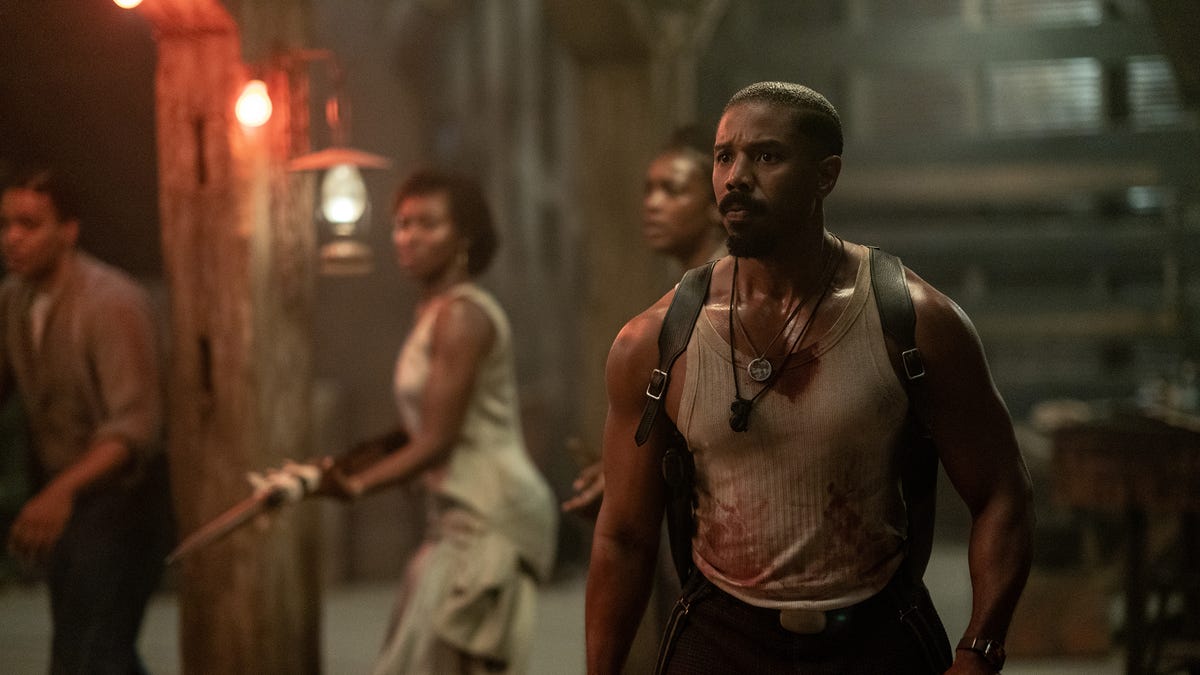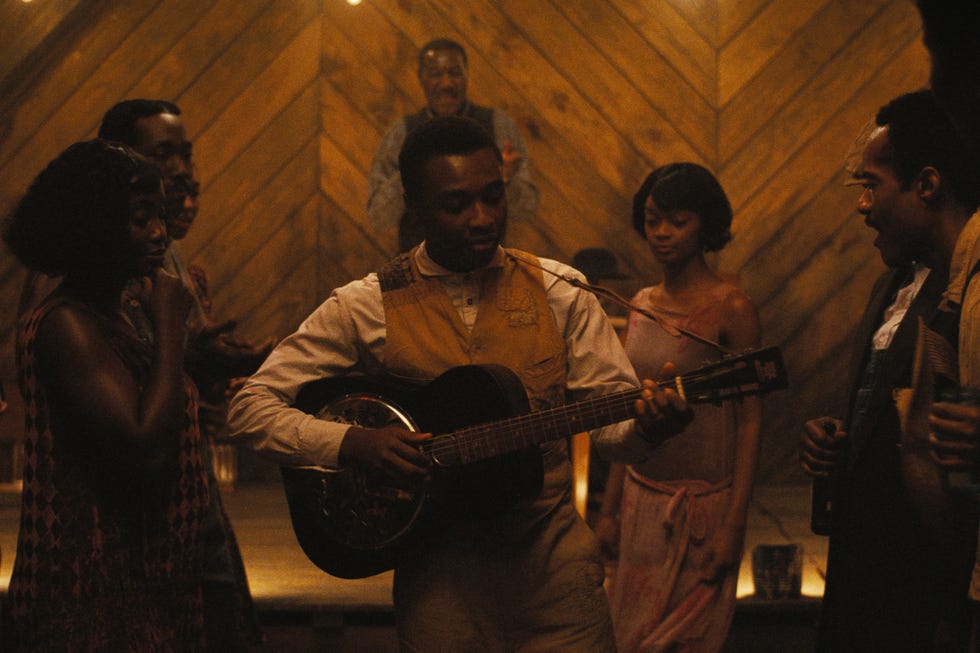The <i>Sinners</i> End Credit Scenes Add Even More Layers to Ryan Coogler’s Film


Spoilers below.
Ryan Coogler’s sexy, scary vampire epic Sinners has taken theaters by storm, topping the box office on opening weekend. Set in the 1930s Mississippi Delta, the thriller stars Michael B. Jordan as Smoke and Stack, a pair of twins who open up a juke joint upon returning to their hometown after getting involved in criminal business. Joined by their cousin Sammie (Miles Caton), a preacher’s son with a natural talent for the blues; former loves Mary (Hailee Steinfeld) and Annie (Wunmi Mosaku); and other members of the community, the brothers make their dream a reality. But it quickly turns into a nightmare when a few vampires in disguise, led by a folk music lover named Remmick (Jack O’Connell), crash the party and start turning the guests into fellow bloodsuckers.
The juke joint’s opening then devolves into a clash between the living and undead, complete with garlic, wood stakes, and fire. Stack, Mary, and Annie are among those who get turned to the dark side, with Smoke having the impossible task of having to kill his brother for his own safety. Sammie delivers the final crushing blow with his guitar into Remmick’s head before he and Smoke run off in the wee hours of the morning. After the sun rises, Smoke has another battle to fight—against the Ku Klux Klan members who sold him the venue. He shoots them all down, but he doesn’t make it out alive either. Sammie, however, stumbles into his father’s church covered in dirt and blood, bringing us back to the opening scene of the film.
Sinners’ final moments, after the dust settles from that frightful night, jump decades into the future to Sammie’s his elder years (played by real-life music legend Buddy Guy). He’s still playing the blues, and even appears to own the club where he’s performing. He’s come a long way since that vampire encounter, but his past still comes back to haunt him, as a post-credit sequence shows.
When Sammie heads backstage after a show, a bouncer tells him he has two surprise visitors: none other than Stack and Mary. They haven’t aged at all since the last time Sammie saw them (you know how vampires don’t age), though now they’re wearing ’90s outfits and hairstyles to blend in. It turns out the couple survived the massacre all those decades ago. Although the film appeared to end with Smoke killing his brother, he actually just let him go and made him promise to stay away from Sammie. “I guess I was the one person he just couldn’t kill,” he says.
Now, decades later, Stack has not only revisited Sammie, but also makes an interesting offer: If Sammie wants, Stack can make him immortal with one lethal bite so he can continue playing music forever, without pain. But Sammie knows better than to overstay his welcome on Earth. “I think I’ve seen enough of this place,” he replies.
Before Stack and Mary leave, Sammie shares what that night was really like for him. All these years later, he still has nightmares about it that leave him waking up paralyzed. But before the sun went down that evening, he says he thinks it was “the best day of my life.”
Stack agrees. That was the last time he saw his brother and the last time he saw the sun. “For a few hours, we was free,” he says.

Miles Caton as Sammie Moore in Sinners.
After the rest of the credits roll, another time jump takes us back to Sammie’s youth, in his church. He’s singing “This Little Light of Mine” on that same guitar he’ll later use to fight the undead. It’s another opportunity to show off Miles Caton’s rich vocals and musical talents as well as a way to end the film—for real this time—on a hopeful note. An uplifting melody to close out a tale of gruesome carnage.
Though many have labeled Sinners a vampire movie, music is in its soul. We see that in Sammie’s unshakeable passion for playing guitar and singing the blues; in how the community gathers to dance at Smoke and Stack’s juke joint; or how they sing together at church. Coogler portrays music within the Black community as a form of tradition—a necessary means for survival—that has evolved through decades and generations. And some traditions, like vampires, never die.
elle




